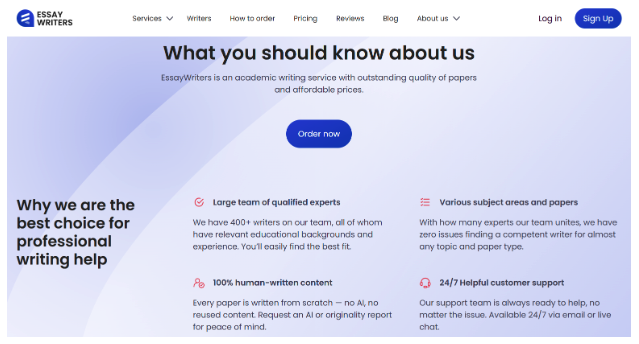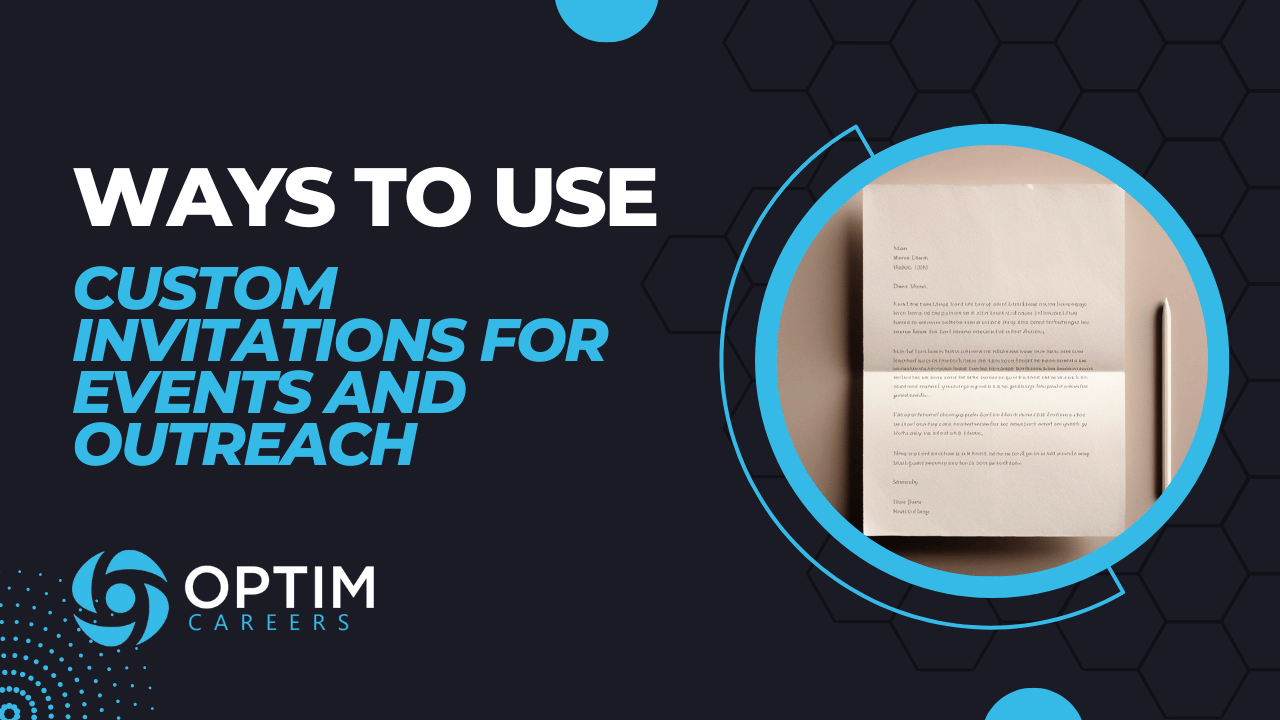What Are Your Salary Expectations [3 Experts’ Answers]
There seems to be a good number of people who think salary conversations in interviews and at the job offer stage are a game. It’s not. Because of this narrative, I think the question invokes more dread than necessary in many candidates.
I’ve also seen so many examples on blogs and social media that look like they’re straight out of ChatGPT. Today I want to share with you some real answers, from true experts that will make you sound like a human and set you up for your best possible outcome.
Discussing salary is probably one of the most misunderstood topics with the most bad advice on the internet. I’m convinced that the reason it’s so hard to answer is partially because of this fabricated misinformation designed to make you think it’s complicated - and to sell you coaching services.
Let’s remove that dread and make your life a little easier the next time you’re asked about your salary expectations in an interview. Buckle up!
Why Recruiters Ask “What Are Your Salary Expectations”
I’ve heard all kinds of wacky things about why interviewers ask this question. One person on social media said it was because they are judging your self-worth. I think that’s the dumbest thing ever. I’ve recruited for over a decade and I don’t know anyone who is trying to judge your self-worth by asking this question.
The simplest answer to this question is from John Gates, a Talent Acquisition Director and the author of Act Your Wage - a book that every job seeker should have on their bookshelf. The reason they ask is simple.
They want to know that they can get you and they’re not wasting their time. If they can’t pay you what you want, why waste anyone’s time? That’s it! That’s the reason.
Alternative Approaches I Think Are Better
If you are an interviewer, I think there are better ways to ask this question. My preferred approach to this question is as follows:
“The base salary range for this position is between $X and $X. We determine that based on (rational). The main factors that influence where you might land in that range are X, Y, and Z. Are you comfortable with that salary range?”
Here’s why I like that better. It’s because of a negotiation tactic called anchoring.
If you’re not trained in negotiation, anchoring refers to this. Whoever says the first number, sets the anchor for the remaining discussion and negotiation. Similar to a ship anchor when dropped, the ship cannot move very far away from that anchor. In other words, you’re setting the stage for what is to come and no one (in their right mind) is going to try and move very far beyond those numbers later. Frankly, it makes for a much smoother process with fewer hiccups. It also makes things less awkward.
If your company requires applicants to include a salary expectation on a job application, consider making the response field a range instead of a single input field.
When Is This Question Asked
Expect to answer this question at these four stages in the hiring process.
Application
Many companies will ask for your salary expectations right on the application form when you submit your resume. I would not recommend skipping it. I’ll talk more later about how to answer it.
Phone Screen
This is the first call you’ll have with a company representative, usually a recruiter. They’ll ask to make sure neither of you wastes your time.
Interview
During the interview with a hiring manager, they too may ask this question to confirm that your expectations align with what they can pay. While I find it slightly less common at this stage, you could still be asked.
Job Offer
It probably won’t be asked in the same way, but you will discuss salary expectations again when a company decides to issue a job offer.
How to Answer What Are Your Salary Expectations
Know Your Minimum Number
I don’t believe there is a right or wrong answer in how you arrive at this number and quite frankly, it’s none of anyone else’s business. Some people arrive at their minimum number based on what they are earning now. Your expectations are not the same as your current salary; however, if you use your current salary to influence your minimum expectations, that’s up to you.
Others search sites like Payscale or Glassdoor for user-reported data and use that to influence their decision. Some base it on their personal budgets. Others base it on what they believe their skills and experience or worth and the years of experience they have doing a particular job.
However you go about doing this is fine, but know what your minimum number is to accept a job offer.
Give a Range Starting With 20% of Your Minimum Number
When answering I like to add 20% to my minimum number and start with that. If my minimum number to accept a job is $100,000, then I would tell them that I’m discussing similar roles with similar companies in the $120,000 to $150,000 range.
The reason I say to do this is because the recruiter needs to believe that they can close you. John Gates mentions that it is risky for a recruiter to pass you forward and get to the end and not be able to close the job offer. As a former recruiter myself, I couldn’t agree with him more.
Starting your range in the middle to lower end of your expectations vs giving a specific number is the safe way to ensure you don’t price yourself out of the job.
Tell Them Your Collaborative
If you’ve been trained in negotiation tactics, you know there are two types of negotiations - competitive ones and collaborative ones. Collaborative works best for salary negotiations.
John recommends after telling them your range that you let them know, “I’m sure that if you decide I’m the best fit and I feel the same that you and I will be able to collaborate on a package that works for everyone.
This will help reinforce the idea that you are interested and that you can be closed on a deal at the end. This will also help you in case your number is slightly off from theirs.
Ask Followup Questions
Once you have given a direct answer, it is okay to ask follow-up questions. Daniel Space, an HRBP, suggests asking these:
How does this fit against the range of the position?
How does this fit among peers on that team now?
Does this company share compensation ratios?
What If The Employer’s Number is Below Mine
If you give a range and find out the potential employer’s pay range is below yours, what do you do?
Make a Decision
First, you have to make a decision. Is this a walkway number? Before you walk away, consider non-cash incentives as well. Those may include flexibility, benefits, incentives, time off, promotion opportunities, stock options, and skill development opportunities. If you’re at an executive level this could also include an equity stake. I consider it non-cash because it’s not guaranteed.
And remember, none of that is available if you don’t have a job and you make $0. So ask yourself, what is the opportunity cost here and do I walk away?
Say This to Save It
If you decide it’s not too low to walk away from, John Gates offers the best word track I’ve seen so far. He teaches this in his Salary Academy program and in his book.
Based on what we’ve discussed, I’m interested in working with this team. I think I can add quite a bit of value and improve financial margins for the department. I’m talking to other companies and it looks like the market for me is higher than the top of your range. Let me ask you this. If the interview goes well, is it possible to move to a higher level? Is there a higher paygrade available for someone who might be better qualified or thought to add higher value to the team than the average person?
They may say no, but they may say yes too.
What Are Your Salary Expectations Sample Answer
Here are some sample answers that I like and have heard from others.
Amy Miller
I know my minimum. I also know depending on how the interviews shake out that my expectations might change but I won’t consider a move for less than $X.
Katie McIntyre
Salary is not my number one motivator for making a move but with that being said, in full transparency, the positions I’m currently interviewing for right now are offering between $X and $X.
John Gates
I’m discussing similar roles with other companies and they are in the $X to $X range for total compensation. I’m sure that if you decide I’m the best fit and I feel the same that you and I will be able to collaborate on a package that works for everyone.
Things to Avoid When Answering the Question
As I said earlier, salary negotiations and how compensation is determined within companies are some of the most misunderstood things out there. I want to take a minute and discuss some things that you shouldn’t do when answering what your salary expectations are - mostly because you may have read to do some of these things on other sites.
Waiting Until After the Interview to Discuss Salary
There are quite a few coaches who still tell people to only discuss salary after they’ve interviewed you and fallen in love with you. I see this often when former salespeople try to apply their sales tactics to the job search process and many times they don’t translate. This is one of those times.
In sales, they teach people to wait until the prospect desires what you have to discuss price. If you do that in the hiring process, you’re likely to lose. Salary negotiation many times begins at the moment you submit the application.
Sure, you won’t “negotiate” salary until the end of the process, but all along the way you’ll be setting that negotiation up. So I guess you could say, negotiate at the end, but discuss it early.
Redirect the Conversation
Do not try and shift the conversation away from discussing salary. Evading the question will not help you. It will only frustrate the other person. Telling someone that it’s premature to discuss salary is a mistake.
Don’t Try to Discuss Qualifications Instead
Similar to my comment before, some people suggest that you talk about your qualifications and why you are excited about the job instead of answering the question. Saying that you think it’s too early to talk about salary and that you’d rather discuss your qualifications is poor communication skills.
This would be the equivalent of you going to buy a car and the dealer refusing to tell you the price of the car until after you’ve decided which car to buy and you filled out all the paperwork. No one would buy a car from that dealer, nor should they. Don’t do this.
Don’t Deflect
Every amateur salary coach I’ve ever met says to do this. I get it, you don’t want to commit to a number prematurely because you’re afraid you’ll be stuck negotiating in that range later, but that’s just not true.
Larger companies have pay bands and use ratios to determine where you fall within that pay range regardless of what number you throw out there - meaning even if you say a low number, they’re going to give you more because of liability reasons.
Third-party recruiters get paid based on how much you make, so even if you tell them a number that is lower than the company’s pay range, they want to give you as much as they possibly can because they get paid more when you make more.
Most internal recruiters I’ve met will also advocate for you because they know that if they pay you too low, they’ll end up reworking this job again in the near future when you realize it and leave.
Sure everyone wants the best qualified candidate at the best price, but I’ve met very few individuals who will pay you less than what they budgeted for the role because it’s bad business practice.
Daniel Space, an HRBP that I respect, says that not answering the question and instead asking about the budget indicates that you are not forthcoming with information and it can show that you don’t have self-awareness.
Explain Your Reasoning
Some will advise you to answer the question and give your reasons about why you think you’re worth that amount of money. I don’t think this is the time or place for that. You might do this later when you reach what I consider the salary negotiation stage, but this is more of a salary discussion stage and there’s no need to give any reasons. You’ll make a move for this amount of money and that’s enough reason.
It’s called an expectation for a reason - because that’s what you expect regardless of your reason.
Aim High
This is another one of those amateur tactics I see often from previous salespeople turned salary coaches. While this may work when you’re selling something, it doesn’t usually work out well in a job search.
Again, a lot of companies use ratios to determine pay so it doesn’t matter how high or low you are. You’re going to most likely end up wherever their model puts you. With that being said, I think it’s best to aim middle to low at this point.
If you price yourself too high, you’ll price yourself out and the recruiter won’t believe that they can get you to say yes later, regardless of whether you try to change your number. If you price yourself too low, there’s a better chance that they will move your number up for you.
Answering Industry Standard
If you follow the advice of answering with “I’m comfortable with an industry-standard salary” then you didn’t answer the question. Few things infuriate an interviewer more than not giving a direct answer to a direct question.
Saying You Are Flexible
This is the same as the previous one. You didn’t answer the question.
How to Determine a Reasonable Salary Expectation
There is so much information all around us if we just look. Here is a list of ways to gather information in order to form a reasonable salary expectation, starting with the best sources of information and ending with ok places to gather salary data.
Ask a recruiter who recruits for the jobs and industry that you are considering. For example, I spent years recruiting accounting professionals in a specific area. I’m usually spot on the money when someone asks me what they think a company is paying for those roles.
Ask people in your network. You should have a professional network of others who are in your field and industry. Ask them what the industry is paying. Better yet, ask them what companies of a certain size are paying for the job you’re considering. They’ll be able to tell you if they work in that space.
Research salaries on Payscale or Glassdoor. I’m not a huge fan of these sites, but they can be a good starting point. They don’t always get it right. That’s because anyone can add a salary number to the data. I could log in tomorrow and say I’m a CFO and I get paid $1,000 per year and no one would fact-check me.
Salary Expectation vs Salary History
There is a difference between salary expectations and history. Expectations are what you want to earn. History is what you did earn previously.
When someone asks you about your salary expectations they are not asking you about your salary history. No one needs to know your salary history and it has nothing to do with your expectations (unless you want it to).
In fact, as I write this it is illegal in 22 states and 23 local municipalities to ask someone about their salary history.
What to Do If Someone Asks About Your Current Compensation
If someone does ask about your current salary, Amy Miller suggests saying something like this:
I’d rather focus on my expectations. What can you tell me about this specific role so I can start thinking about what that would need to look like?
I like this talk track because it’s more relevant to the discussion. Your current compensation isn’t going to change, but your expectations could as you find out more about the job.
Answering Salary Requirement Questions on a Job Application
I’ve always found it trickier to answer a salary expectation question on an application. At this point you have so little information about the company or the job, it’s hard to make a sound decision. I also don’t think it’s wise to spend 30 minutes researching salary information for every company you apply to.
Rather than reinvent the wheel, I’m going to turn to what my colleague John Gates has to say in his book, Act Your Wage. John says it’s okay if your initial number on the application is on the low side of what you’d accept. He suggests aiming in the middle to lower range on an application.
That’s because your goal in the application is not to stick yourself with a bad number or to negotiate the best possible pay package. Your goal is to pass the resume screening process and get a phone call from the recruiter. At that point, John does a great job in his book of teaching people how to move the number to the right place.
What Are Your Salary Expectations Recommended Reading
Why Are You Interested in This Position [Interview Guide]
How to Use AI For Interview Prep
Cole Sperry has been a recruiter and resume writer since 2015, working with tens of thousands of job seekers, and hundreds of employers. Today Cole runs a boutique advisory firm consulting with dozens of recruiting firms and is the Managing Editor at OptimCareers.com.
Get Smarter About Job Search
Members get exclusive job search analysis, a curated coaching feed, and on-demand coaching.

















